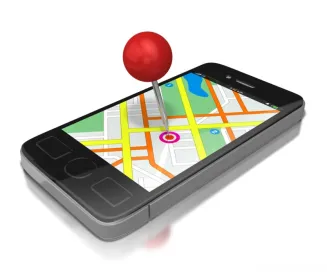Location data is data that marks the longitude/latitude location of a smartphone or other device at a particular time, or over a period of time. It works like this: each day our device, which has a unique identifier or ID, uses or connects to multiple location signals, like GPS, Wi-Fi, Bluetooth, cell towers or other external location signals. Each location signal combined with an identifier permits you to plot the location of the device at a particular time, and the movement of the device over time. Carriers, private companies and apps collect users location data, usually automatically and often even when you aren’t using the app. You can literally track a device’s physical location over the course of a day by the monitoring of the external location signals, tracking from a home to an office, to the grocery store, to the gym, to the beach. As you use your device to look up information, data is collected that flags your interests, such as vacation spots, new mattress models, restaurants, etc.
Your location data is then sold to aggregators, advertisers and marketers, sometimes in real time and usually without your express consent. Advertisers then use the location data to target relevant ads to your device. Ever wonder why the special offer for airline fare pops up into your social media app while you are looking up hotels in Hawaii? Law enforcement and government agencies are also interested in location data as it can be used to put a suspect near a crime scene. Using location data, they can determine whether a particular device owned by the suspect was used to make a phone call near a particular cell tower at a particular time. Given this value and interest, it is no surprise that location data market continues to grow. Lots of data brokers, aggregators and marketing companies are profiting from these currently legal transactions, which are based on our tracked movements and activities as we go about our day. The New York Times 2019 piece has an interesting visual view of location data.
These purveyors of this widely available location data claim it is anonymized. By that they mean while the ads are delivered to your device and your apps based on your location data, the advertisers don’t know your name. While the data usually doesn’t include your name or phone number, it can contain other information, such as your gender, your age and your unique device ID. It is also very easy to combine location data with other purchased or acquired data, such as real estate records or office location, which can permit the identification of individuals by name. There are many examples where location data has been used against specific individuals.
The most recent example involves a Catholic priest who was confronted with location data that showed the use of gay social “hook-up” app Grindr almost daily over multiple years from locations near his office and his work-owned home, as well as trips to gay bars in other cities during timeframes he was known to have been there for work events. After being confronted, the priest resigned his high profile position. Some of the details are still murky as to how the data was acquired and tied to a specific person. Nonetheless, this story is likely to further concerns about the collection, sharing and sale of location data.



 />i
/>i

